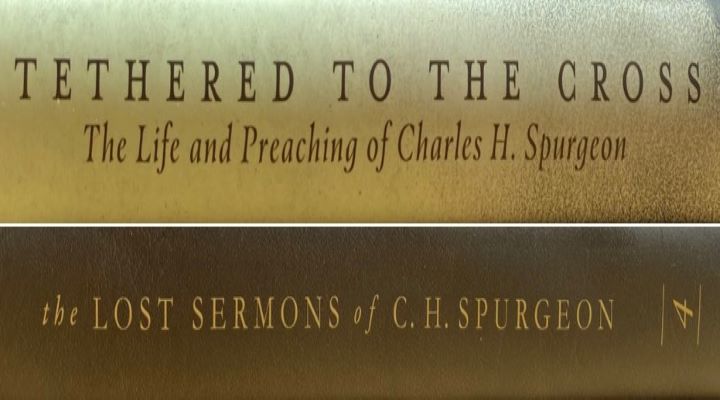Through several hospital visits and the recommendation of our mission organization to consider leaving the field of Papua New Guinea, my wife and I were faced with a difficult, trying decision several years ago to either a) stay in tribal mission work among an unreached people group or b) pack it all up and minister back in our hometown in Illinois. Skype calls got heated with those who oversaw our ministry as we discussed our intense desire to remain with our coworkers and “slug it out.”
6 Principles for Biblical Decision-Making:
1. Recognize that we were created to depend on God for all of our needs.
2. What God desires for our lives is found in His Word. Sometimes He gives us general principles, sometimes He gives us specifics.
3. Prayer for wisdom in every decision is essential.
4. When our hearts are submissive, God will provide direction, even when we have to choose between two equally-good decisions.
5. Determining God’s will involves seeking the counsel of strong Christians who are wise.
6. Choose what glorifies Christ, rather than what brings attention to yourself.
We desperately wanted to finish the race, but, as I mentioned in part one of this short series on Biblical decision-making, through counsel and God’s great mercy, we applied several principles in making this tough choice. We weren’t perfect, far from it. In fact, I’m sure if we’d been more careful to make Biblical decisions leading up to this point, we wouldn’t have ended up at this cross-roads in the first place. However, the Lord graciously walked with us through this process, and, because of the gravity of it all, we were desperate for his leading.
First, we repented of our own pride. God doesn’t need the Bullingtons to reach the Kuman people. We are dependent on Him, but He is in no way dependent on us. Papua New Guinea, specifically the Kuman, could always use more missionaries, but it’s not like either has been totally abandoned. Year after year, more and more able-bodied, elder-qualified men are heading overseas. It’s God’s work, not ours.
Second, what God desires is found in His Word. Sometimes He gives us general principles, sometimes He gives us specifics. Are we in sin if choose to work in Princeton, Illinois rather than the jungles of PNG? No. Nowhere in the Bible does it say “Justin, go and make disciples OVER THERE, not here.” However, if I knew my wife and children were miserable and couldn’t function in a tribal setting, yet I chose to go back there anyways, I would be 1) a poor steward of my family and 2) disqualified as an elder. Then I’d be in sin. I can’t run my household like a tyrant and remain in ministry.
Those were the first two principles we worked through: humility, and the sufficiency of God’s Word for any life choice. Here are four more.
3. Prayer for wisdom in every decision is essential.
“If any of you lacks wisdom, let him ask God, who gives generously to all without reproach, and it will be given him (James 1:5).”
For believers, help is readily available from the God who gives. James hoped his readers would feel this need for wisdom (sophias), not just knowledge. Certainly Google can tell us the affects depression has on the body or the survival rate of children who get life-threatening bacterial infections. But wisdom knows how to use this knowledge to accomplish the glory of God. Not only is wisdom available from God, but He will give it generously, not grudgingly. In other words, He won’t mumble and murmur to Himself about how dumb we are for asking again. He’s happy to give wisdom to those who ask in faith.
“Make me to know your ways, O Lord; teach me your paths. Lead me in your truth and teach me, for you are the God of my salvation; for you I wait all the day long (Ps. 25:4-5).”
When we saturate our minds with the truth of the Bible, prayer for wisdom is answered when the Holy Spirit brings applicable Scripture to mind in whatever situation we face.
4. When our hearts are submissive, God will provide direction, even when we have to choose between two equally-good decisions.
“This is God, our God forever and ever. He will guide us forever (Ps. 48:14).”
This was the Psalmist’s hope in Psalm 48: the Forever God will guide us forever. Not just in big decisions or small decisions or clearly-right-and-wrong decisions, but every decision we make is to be Coram Deo or “Before the face of God.” Before the Lord, when faced with two equally-good decisions, honestly, humbly, genuinely ask Him to reveal — whether through past experiences, Biblical principles, Godly counsel, or the spiritual environment surrounding it — which one will give Him maximum glory.
“Trust in the Lord with all your heart, and lean not on your own understanding. In all your ways acknowledge Him and He will make your paths straight (Prov. 3:5-6).”
One more thing: Pleasing God in small, day-to-day decisions is less about “should I wear a red shirt or green shirt, today?” and more about a consistent, moment-by-moment attitude of trust and “fear of the Lord.” Genuine fellowship with God in your day-to-day life should, you know, actually lead you to joy and contentment. If working through these decisions leads you instead to fear, paralyzation, and frustration, you are walking in the flesh, not the Spirit. That isn’t the Christian life God has called you to.
5. Determining God’s will involves seeking the counsel of strong Christians who are wise.
“Where there is no guidance, a people falls, but in an abundance of counselors there is safety (Prov. 11:14).”
A stubborn refusal to ask for directions isn’t a godly quality, men. Two themes in the book of Proverbs converge on this particular point: its emphasis on who you hang out with (Prov. 18:24; 22:24-25; 27:6) and the need for an abundance of counselors. You can ask for counsel until you’re blue in the face, but if you’re not a part of a body of believers who truly love and serve Jesus Christ, you’ll inevitably make foolish, worldly decisions.
Because God placed us into a faithful, Bible-teaching church, we had those counsellors who could walk us through tumultuous times, wanting first what is glorifying to God and second what is best for our family.
“Without counsel plans fail, but with many advisers they succeed (Prov. 15:22).”[bctt tweet=”A stubborn refusal to ask for directions isn’t a godly quality, men” username=”ThingsAboveBlog”]
6. Choose what glorifies Christ, rather than what brings attention to yourself.
“So, whether you eat or drink, or whatever you do, do all to the glory of God (1 Corinthians 10:31).”
This is “The Glory Principle.” You’ve been given new life, and that new life loves Christ and His glory. However, that old man still lives in you, and he often rears his ugly head. Even when we’re attempting to discern God’s will through a voracious study of His Word, our flesh and spirit war against one another. Even a good decision, when we are selfishly ambitious, turns to wood, hay, and stubble in an instant. A missionary who goes to the ends of the earth because he loves the praise of men hasn’t built his ministry on Christ, but himself. At the Bema seat judgment (1 Corinthians 3:12-15), rather than receiving reward, his work will be burned up.
“Only one life ’twill soon be past. Only what’s done for Christ will last.” –C.T. Studd
As I often must do, too, repent of your selfish ambitions and put on Christ. Seek His glory, not your own.
[perfectpullquote align=”full” bordertop=”false” cite=”” link=”” color=”” class=”” size=””]”Do nothing from selfish ambition or conceit, but in humility count others more significant than yourselves (Phil. 2:3).”[/perfectpullquote]




Robert, thank you very much for the kind words, brother. That sincerely means a lot to me that your spirit…